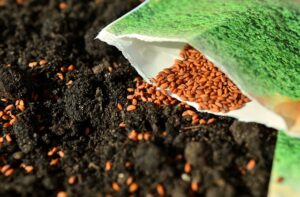In the vast and varied world of gardening and sustainable living, understanding the distinctions between GMO vs hybrid vs heirloom vegetables is pivotal. Each type has its own set of characteristics, benefits, and drawbacks, impacting everything from nutrition to environmental sustainability. This guide aims to unravel these differences, offering insights to home gardeners and food sustainability advocates alike.
GMO (Genetically Modified Organisms) Vegetables
Definition and Explanation: GMO vegetables are those that have had their DNA altered through genetic engineering. Unlike traditional breeding processes, genetic modification allows for the addition of new traits that would not naturally occur in the plant.
The Process: The creation of GMO vegetables involves the insertion or “splicing” of genes from other organisms (sometimes even from different species) into the plant’s DNA. This process can make plants resistant to pests, diseases, or environmental conditions.
Pros and Cons: The advantages of GMO vegetables include increased yield, reduced need for pesticides, and enhanced nutritional content. However, concerns have been raised about their impact on health and the environment, as well as potential contributions to monoculture practices.
Hybrid Vegetables
Definition and Explanation: Hybrid vegetables result from the cross-pollination of two different but related plant varieties. This selective breeding aims to produce offspring that possess the best traits of both parent plants.
How They’re Produced: Hybridization is achieved by manually pollinating flowers from one plant variety with pollen from another. The resulting seeds produce hybrid plants that are often more vigorous, productive, and disease-resistant than their parents.
Advantages and Disadvantages: Hybrids often offer improved flavor, larger yields, and greater uniformity. However, because their seeds do not reliably produce true-to-type plants in subsequent generations, gardeners must purchase new seeds every year, which can be a drawback for those looking to save seeds.
Heirloom Vegetables
Definition: Heirloom vegetables are open-pollinated varieties that have been cultivated and passed down through generations, often over 50 years.
Characteristics: These vegetables are celebrated for their rich flavors, diverse colors, and unique textures. Unlike hybrids, heirloom varieties can reproduce true to type from their seeds, allowing gardeners to save seeds year after year.
Benefits and Drawbacks: Heirlooms contribute to biodiversity and offer a living link to our agricultural heritage. However, they may be less consistent in yield and more susceptible to pests and diseases than hybrids or GMOs.
Comparative Analysis
Nutritional Differences: While some studies suggest that heirloom varieties may offer superior taste and possibly nutritional benefits due to their genetic diversity, the nutritional content of vegetables also depends on growing conditions and soil health.
Environmental Impact: GMO and hybrid cultivation practices often involve the use of chemicals and intensive resources, potentially harming the environment. Conversely, heirloom and open-pollinated varieties, especially when grown using organic methods, can support biodiversity and soil health.
Cost and Accessibility: GMO and hybrid seeds can be more expensive due to the technology and breeding methods involved. Heirloom seeds, on the other hand, can be saved from year to year, offering a cost-effective and sustainable option for gardeners.
Consumer Choices
Making informed decisions when purchasing vegetables involves understanding these distinctions and their implications. Labels can help; for example, organic certification excludes the use of GMOs. However, the best way to know what you’re getting is to grow your vegetables or buy directly from trusted local farmers.
Conclusion
The debate between GMO, hybrid, and heirloom vegetables is complex, touching on issues of nutrition, environmental sustainability, and agricultural biodiversity. By making informed choices and supporting sustainable agricultural practices, we can contribute to a healthier planet and ensure a diverse and nutritious food supply for future generations.
Meta Description: Dive into the world of vegetables with our comprehensive guide on the differences between GMO, hybrid, and heirloom varieties. Discover their impact on sustainability, nutrition, and the environment, and make informed choices for a healthier future.

